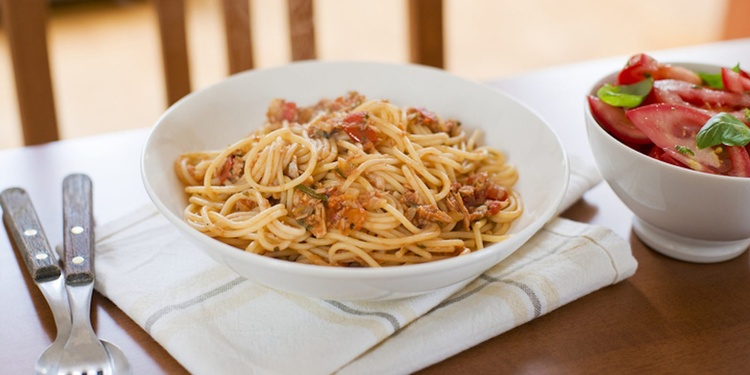Italian journalist and writer Piero Valdiserra dedicated an entire book to this “mysterious” dish, outlining a recipe for spaghetti with meat ragù.
The recipe in question derives from peasant traditions in the countryside of Bologna and was discovered and recorded by the committee dedicated to the dish, headed by Gianluigi Mazzoni and chef Stefano Boselli.
Consulting rural nonne and housewives, the committee confirmed that a recipe with dried spaghetti and ragù did, in fact, exist.
However, the dish was rarely prepared and eaten, only on weekdays when there wasn’t time to make fresh egg pasta.
Leftover ragù from Sunday was used and seasonal vegetables or peas were added to make it go further.
This unique dish was cheap and tasty, and much lighter with the use of vegetables instead of the traditional tagliatelle.
While the recipe comes from Italy’s cucina povera, not Bolognese cuisine, it was traditionally made in the countryside surrounding the northern city.
Mazzoni and his committee highlight that spaghetti bolognese is not a traditional recipe, adding that it’s sought after by many foreign tourists and serving it in local restaurants is a profitable marketing strategy.
To clear up the controversy – or perhaps confuse us even more – the Academia della Cucina Italiana released an official recipe for this dish... using tuna, not ragù.
According to the academy, the true traditional recipe from Bologna features spaghetti, tuna and tomato.
Following extensive studies, the academy reconstructed the birth and diffusion of this dish, tracing it back to the early 1900s.
During this time, tuna in oil was first seen on the market and spaghetti began being sold in northern Italy.
The dish quickly gained popularity due to the fact that it featured cheap ingredients and was something Catholics could prepare on Fridays, when they were required to eat “light”.
The academy’s official recipe was presented in the Chamber of Commerce in Bologna, putting the debate to bed.
Here is the official recipe for spaghetti bolognese, according to the academy.












